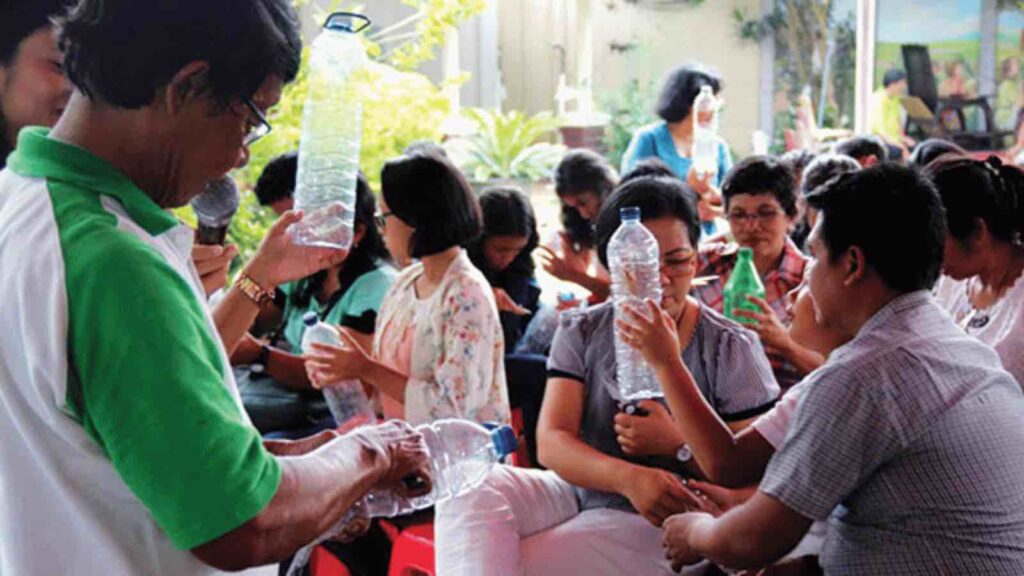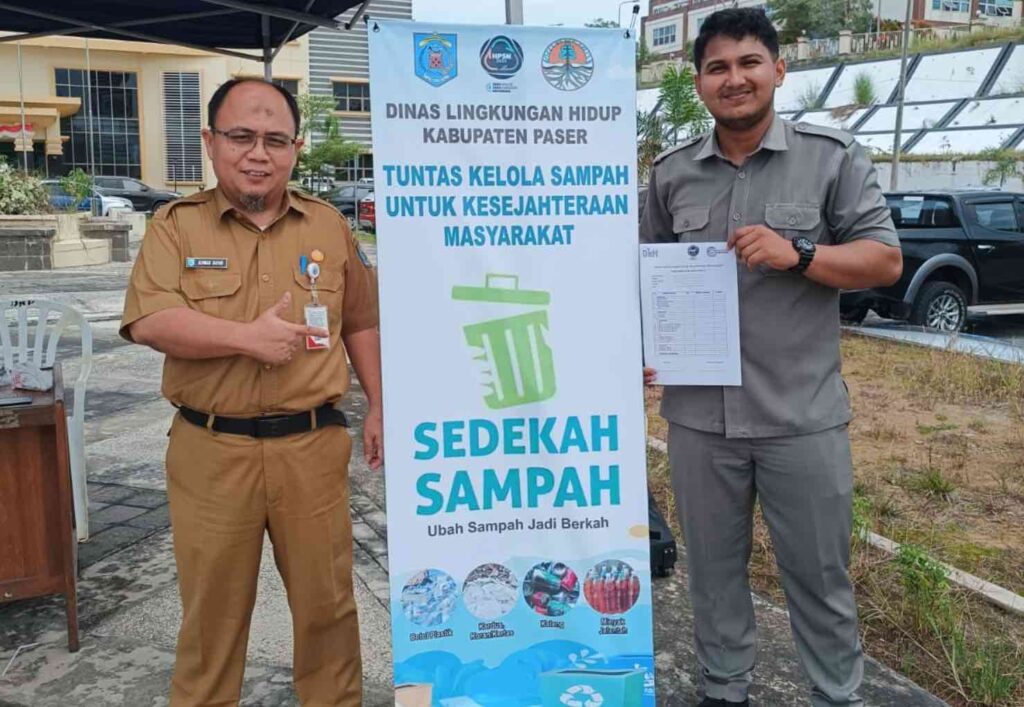From devotion to action: mosques and churches leading the fight against plastic pollution in Indonesia.
In Indonesia, a transformative movement is taking shape within mosques and churches, aimed at addressing the country’s mounting plastic waste problem. Through innovative initiatives, religious institutions are not only creating awareness but also turning waste management into a profitable endeavor. This solutions-oriented story explores how mosques and churches are leading the charge, demonstrating that sustainable practices can go hand-in-hand with spiritual values.
RELEVANT SUSTAINABLE GOALS



A Mosque’s Waste Charity Movement:
Baitul Makmur Mosque in Bekasi, West Java, has pioneered the Gerakan Sedekah Sampah Indonesia (GRADASI) or the Indonesian Waste Charity Movement. GRADASI encourages communities to donate household waste, including plastic, at mosques. The initiative not only helps reduce plastic pollution but also generates funds to support the mosque’s activities and the congregation.
GRADASI : Addressing Plastic Waste in Indonesia via Religious Communities
With Indonesia producing 19 million tons of waste in 2022, of which 18.2% was plastic, the country grapples with unsightly landscapes, polluted marine ecosystems, and potential health issues. GRADASI’s religious approach has gained traction in a nation where 87% of citizens identify as Muslims. By spreading widely, this movement has the potential to reshape the mindset of Indonesia’s 280 million population, promoting wiser plastic use and improved waste management.
GRADASI, initiated in 2021 through collaboration between governmental bodies, the United Nations Development Programme, and the Indonesian Ulema Council, emphasizes the concept of “Sadaqah” or voluntary giving, which extends beyond financial means to include waste donation. With drop boxes provided in mosques, the initiative encourages congregations to donate various types of waste, including glass, metal cans, paperboard, and plastic. The collected waste is then recycled, reducing the need for virgin plastic material.
Since its inception, GRADASI has gained momentum, expanding from six participating mosques to approximately 100 across Indonesia. Initial resistance from some congregations was overcome as the purpose of GRADASI, educating, keeping surroundings clean, and funding mosque activities, became clear. Notably, “GRADASI Akbar” events held in Baitul Makmur Mosque attracted widespread media coverage, inspiring more people to learn about the initiative and driving local community support.
GRADASI aligns with Indonesia’s national objectives to manage 70% and reduce 30% of waste by 2025, and to slash 70% of marine plastic debris by the same year. Additionally, it contributes to the “Zero Waste 2050” target, aiming to eliminate solid waste going to landfills by mid-century. By utilizing proceeds from plastic sales, GRADASI supports various social initiatives, including paying tuition for underprivileged Islamic school students and installing solar street lights.
Kolekte Sampah:
Several other places of worship have also embraced the initiative. The Diocese of Bogor, located in West Java, introduced “Kolekte Sampah” in 2022, in collaboration with governmental and private partners. This program mirrors GRADASI but specifically targets churches.
Father Yosef Segu, the chairman of the Ecology Commission of Bogor Diocese, highlighted the connection between “Kolekte Sampah” and Laudato si’, Pope Francis’ encyclical on the environment. He emphasized that the program represents an ecological transformation within the church community.
Through “Kolekte Sampah,” the church has taken tangible steps to address the waste problem, moving beyond mere appeals, education, or study. The congregation deeply appreciates this practical action towards waste management. Out of the 28 churches affiliated with the Bogor Diocese, fifteen have currently embraced this initiative.
The pioneering efforts of mosques and churches in Indonesia offer a promising path towards tackling the plastic challenge. By leveraging their influence and engaging communities, these religious institutions are driving sustainable change and demonstrating the power of collective action. As GRADASI continues to gain momentum, it paves the way for a cleaner, more sustainable future and inspires other religious organizations to actively participate in environmental movements.




